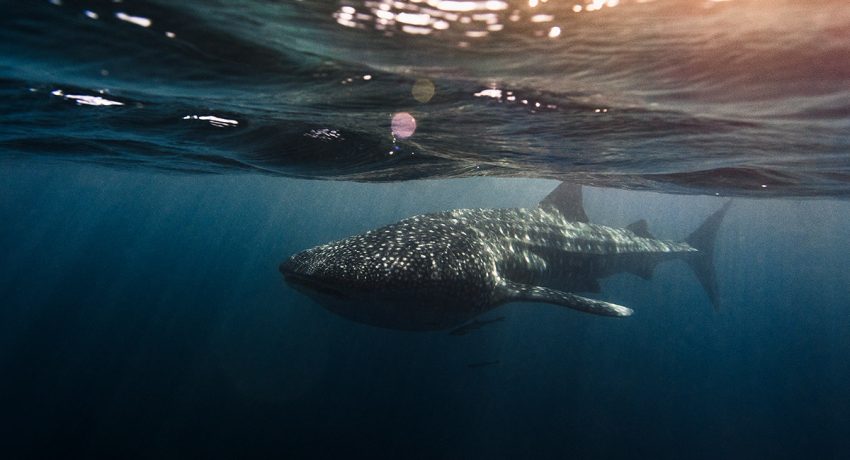If you have ever had the chance to come across one of these beautiful sea giants you may agree that they deserve a special day for themselves, and they do! August 30th is International Whale Shark Day. But their day of celebration goes beyond their cuteness, it is a day dedicated to the conservation of these beautiful creatures.
What Are Whale Sharks Exactly?
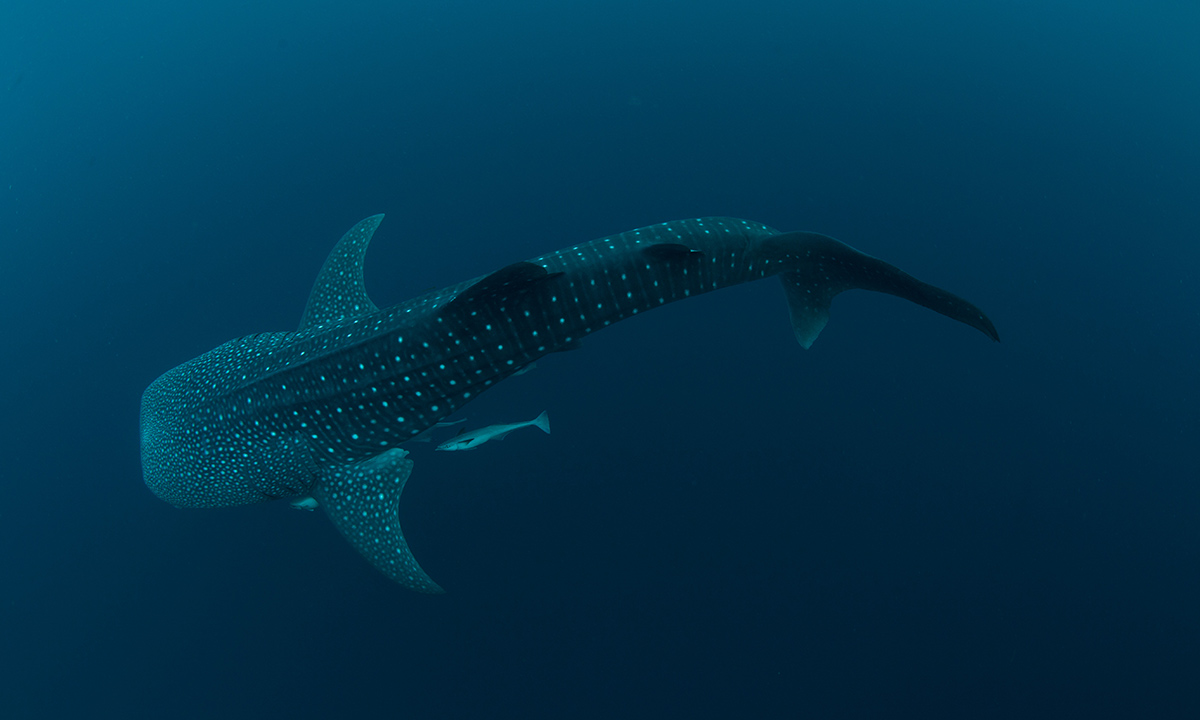
Whale sharks aren’t actually a part of the whale family, that name comes from their enormous size and their physical resemblance to whales. These “Ambassadors of the Sea” are actually the biggest shark species and the largest fish in the world, reaching up to 12 meters in length (39 feet) and can weigh up to 21.5 tons (47,000 pounds)! Although they might be intimidating because of their size, they don’t have any interest in hurting you or your friends since they are filter feeders, which means they feed by sucking water in through their mouth and expelling it through their gills, catching tons of plankton and other small organisms, such as small fish, krill, and squid, in the process. They can eat as much as 20 kilograms of plankton a day (44 Pounds). They might have around 3,000 teeth, but they are just 6mm in length (0.24 inches) with the purpose of filtration.
The whale sharks are a unique species, literally. Just as a fingerprint, their spotted design is a unique pattern, a feature that comes really handy to scientists, since they use their unique patterns to track them individually and their migratory paths.
Why Do We Celebrate International Whale Shark Day?
Unfortunately, for the gentle giants, as big and impressive as they might be, they are highly unprotected and one of the most vulnerable marine animals, as a result, their population has declined a lot in the last one hundred years. In the last 75 years, the whale shark population has decreased around 63%. So, the reason is simple, we celebrate them to raise awareness. In 2016, whale sharks made the International Union for Conservation of Nature IUCN Red List as an endangered species.
That’s why we celebrate International Whale Shark Day, to let people know the harm we as humans are causing to the gentle giants, at this point it is estimated that only around tens of thousands of whale sharks live on our planet, and it is up to us to bring that number to much higher figures.
Why Are Whale Sharks Endangered?
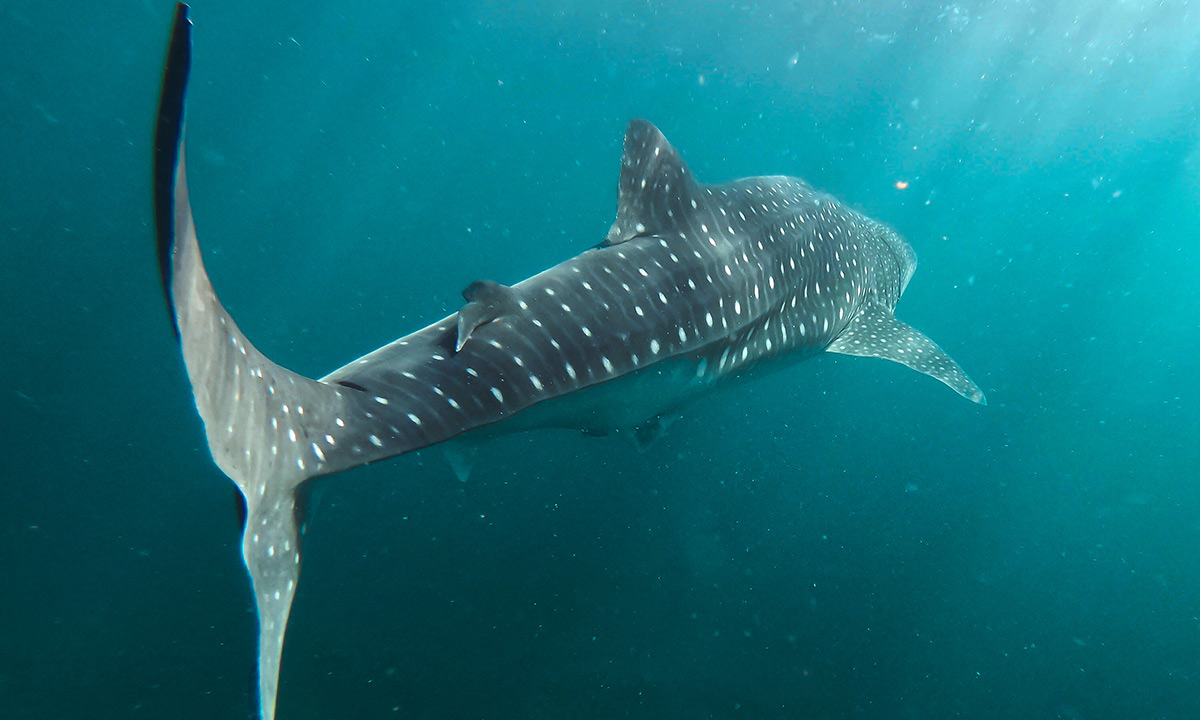
As it is for many endangered species, we humans are the main reason for the rapid decline in the whale shark population putting them at risk of extinction.
There are several reasons for this including overfishing due to the persistent demand for shark fins and shark meat, which are sold for a very high price, especially to the Asian market to make high-end delicacies, such as shark fin soup. This is the case for many species of sharks, including whale sharks. Controls on fishing are too weak and have been unable to stop several marine animals from being classified as endangered.
Another threat to these filter feeders is the vast amount of plastic pollution, which they inevitably ingest.
Even though whale sharks are able to dive up to 1,000 meters deep (3,300 feet), they prefer shallow seas, swimming at just 50 meters (165 feet) below the sea surface, as well as choosing to swim at a slow speed, they swim at an average of 5 kilometers per hour (3.11 miles per hour), that puts them in great danger of getting caught in fishing gear and colliding with ship propellers. Whale sharks are also susceptible to being caught by ocean longlines and gill nets that primarily target marlin and tuna. That’s the reason so many ocean activists fight to control the excessive fishing in certain parts of the world.
Another reason the whale sharks are vulnerable is that they grow relatively slowly and produce relatively few young, which makes maintaining a large population difficult when there are other factors that are killing them off.
Why Are Whale Sharks So Important?
The role that whale sharks play in the ocean is key to keeping the ecosystem balanced. Since their diet consists primarily of plankton (floating organisms vital to the marine food chain), whale sharks are usually found in plankton filled waters, which is a sign of a healthy ocean. But an increase in the population of plankton, might have a negative impact on many marine environments with the formation of algal blooms, which can prevent fish and other aquatic life from being able to find food, causing them to die.
Whale sharks are the most important living filters at sea, and because they don’t have any natural predators, if they become extinct, all of the smaller organisms will increase to uncontrollable numbers.
How Can We Celebrate International Whale Shark Day?
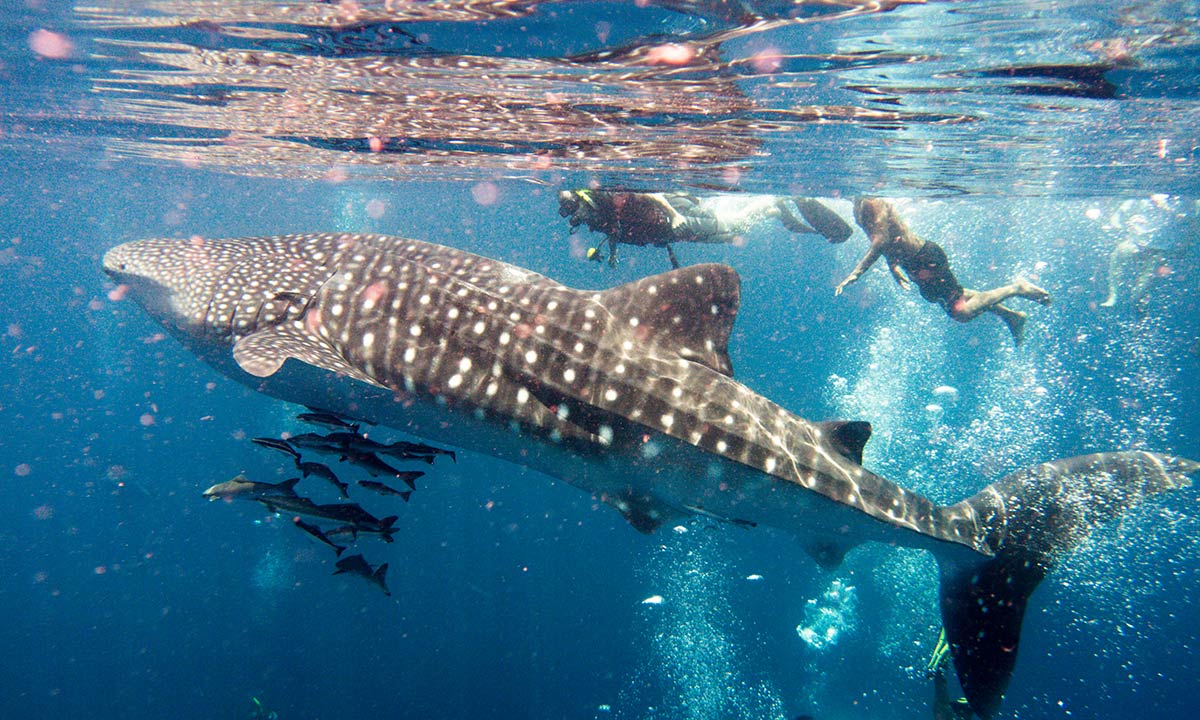
As it is up to us to save the whale shark population, a good way to celebrate International Whale Shark Day is to spread the word, tell your friends about whale sharks, why they are so important, and how endangered they are. Take advantage of social media and share some images along with useful information and facts to help others appreciate whale sharks on their special day.
Be responsible with your use of plastics and how you dispose of your trash. Did you know that many whale sharks accidentally ingest plastic causing them to starve to death? When the plastic reaches their digestive tract, it gets stuck, causing whale sharks to stop eating. Responsibly using plastics is really important because it won’t only help whale sharks survive, but also every other sea creature.
Another great way to celebrate International Whale Shark Day is to visit them! If done responsibly with certified tour companies, having a close encounter with whale sharks is a wonderful experience, and an amazing spot to do this activity is Cabo San Lucas, Mexico. There’s a large population of whale sharks in Mexico.
Whale sharks love the warm waters of Mexico! If you’d like to celebrate whale sharks with a great adventure in Cabo, make sure to book your trip between October and March since that’s whale shark season in the Baja California Peninsula.
But what exactly is a “close encounter experience” with whale sharks? Whale shark encounters may be a whale watching tour from a boat at a safe distance or even swimming with them! Remember, these creatures are not dangerous, so you may get as close as you want to them with no danger at all. Since they tend to move slowly, you will have plenty of time to admire them and take wonderful pictures!
A great, responsible, professional, and certified tour company that will take care of your experience is Cabo Adventures. Just make sure to book your experience in advance since, to ensure a responsible tour, their groups only take a few guests at a time.
An amazing place to stay during your visit in Cabo is Garza Blanca Resort & Spa Los Cabos. Upon your arrival, concierge or your dedicated butler will help you book a tour to experience whale sharks in the best way possible and they will happily answer all of your questions. Swimming with whale sharks is without a doubt one of the best experiences you could have!
What Can I Do to Help?
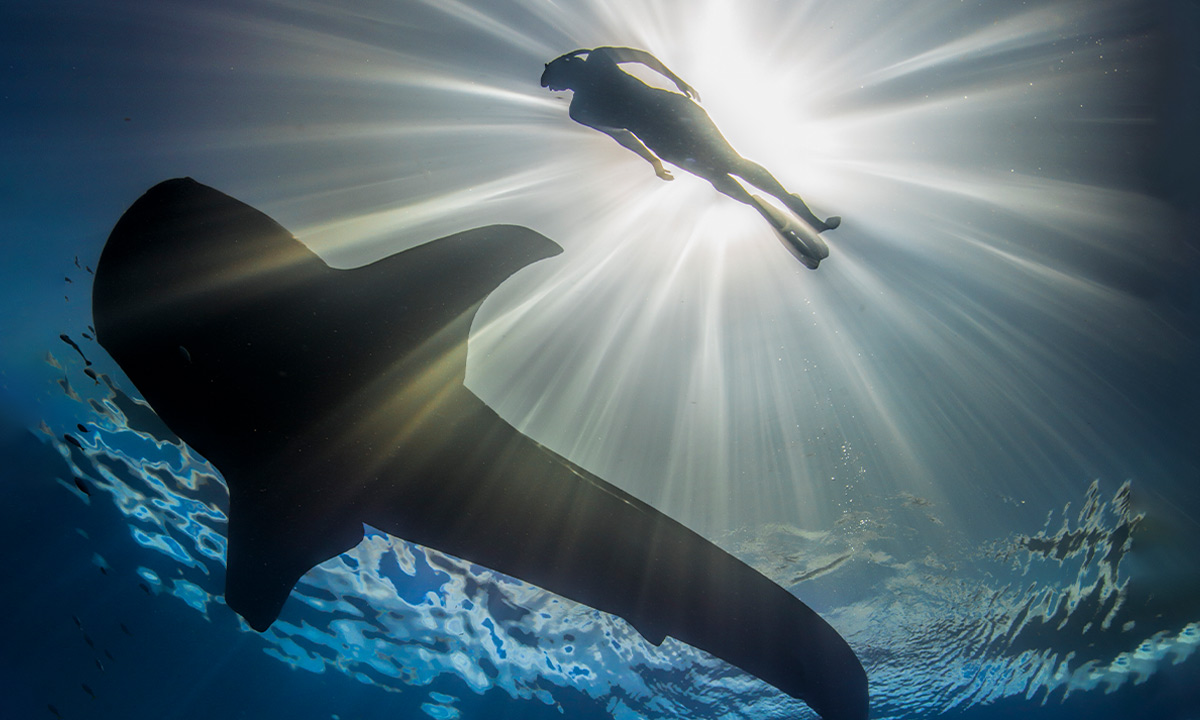
If you’d like to celebrate international Whale Shark Day with a donation, there are many organizations that will happily accept your act of generosity, not only on August 30th, but all year around. Many of these organizations even work together at the International Whale Shark Conference, where they share each other’s studies and ideas on how to help the amazing gentle giants.
The World Wildlife Foundation (WWF) runs a program called Adopt a Whale Shark. You can donate to WWF and choose your virtual adoption kit, which range in price from $25 to $100 USD. You will receive a photo and an adoption certificate with the $25 kit. With the $100 adoption kit, you will receive a whale shark plush, a framed certificate and photo, and a gift bag.
Whether it’s through a donation, an exclusive visit to Cabo during whale shark season, a cute picture post on social media, or even becoming a volunteer, don’t forget to celebrate these majestic creatures this International Whale Shark Day on August 30th, and remember, it’s all about whale shark conservation and raising awareness to stop them from being endangered.

